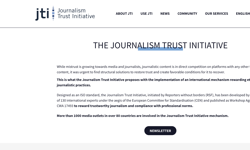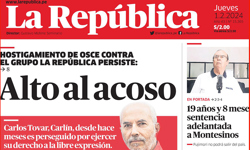
With all the furore surrounding Cummings’ comings and goings during lockdown, it’s easy to forget one of the more troubling aspects of this affair, specifically, the way Number 10 initially tried to bat away questions from the Guardian and Mirror.
Downing Street put out a statement saying it would not waste its time “answering a stream of false allegations about Mr Cummings from campaigning newspapers”.
As the Society of Editors' Ian Murray said: “The mark of a government that truly supports free media is one that steps up to the plate and answers questions from all sources even those it believes to be politically hostile.”
That the allegations have subsequently been shown to be anything but false shows the cynicism of the attempts to shut them down.
But the rest of Fleet Street, sensing a big story, soon piled in and the government was rapidly forced to address the issue in detail and its explanation has been found wanting.
The Daily Mail wrote on Monday: “Do they think we are fools? For the good of the government and the nation, Mr Cummings must resign. Or the prime minister must sack him. No ifs, no buts.”
Now, I suspect that the Mail was not acting out of any sense of shared interest with the Guardian and Mirror, but it raises an interesting point.
Whatever their different outlooks, it is in every newspaper’s interests to ensure that no government can ever play one off against the other: if one newspaper is excluded from lobby briefings, then they should all walk out; if one newspaper’s questions are ignored, then another should ask the same one.
The day a government can pick and choose which questions it answers is a sad day for democracy and makes it much harder to expose wrongdoing. Society suffers.












